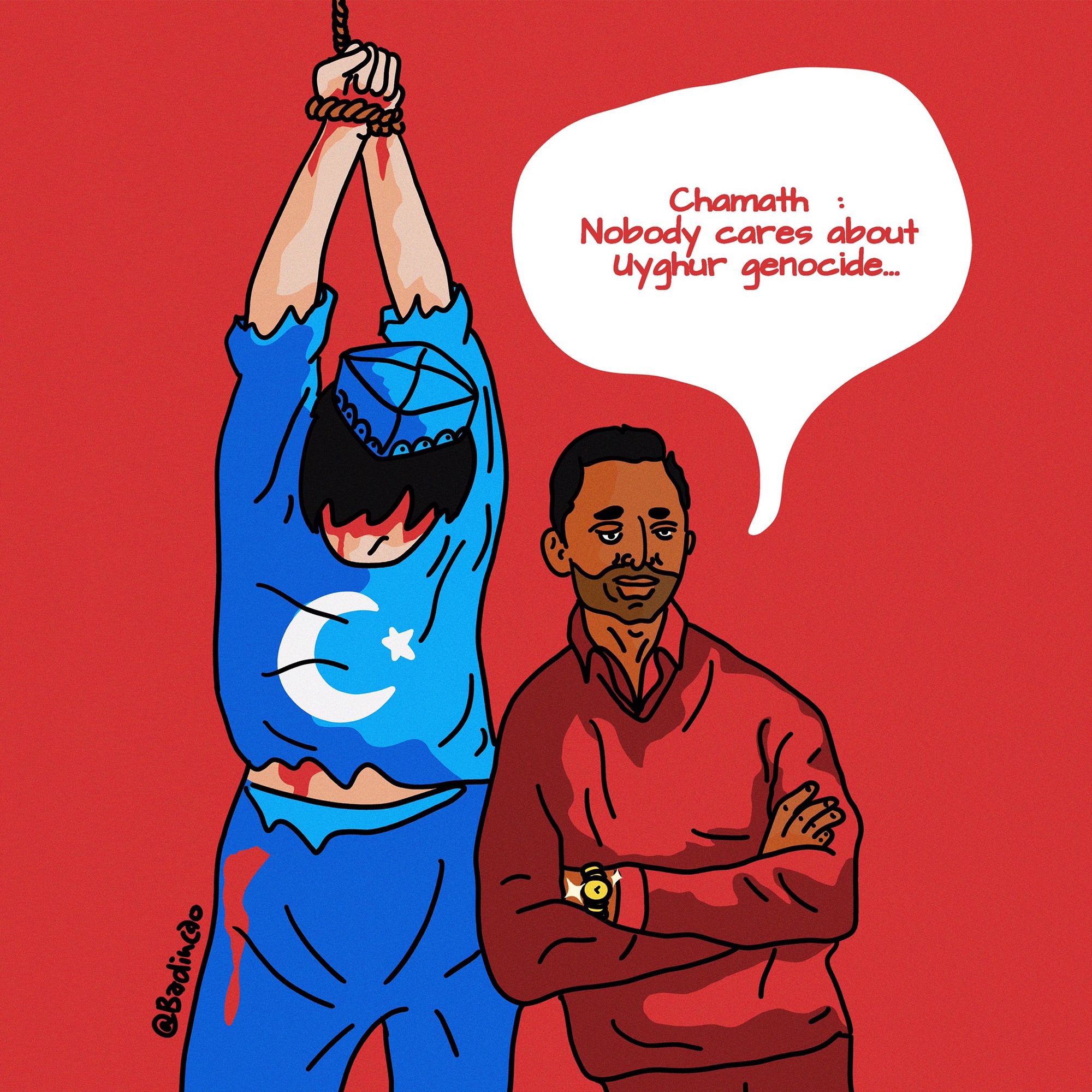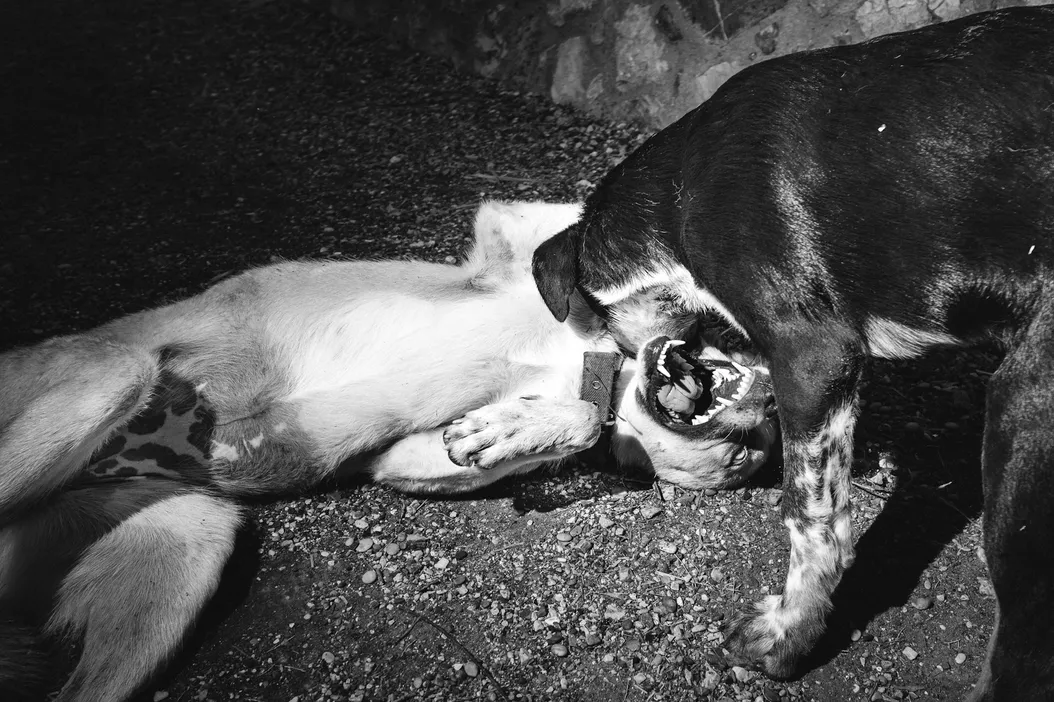Nobody cares about what’s happening to the Uyghurs, OK? I’m just telling you a very hard, ugly truth. Of all the things I care about, yes, it's below my line.
— Chamath Palihapitiya
These comments from a Silicon Valley billionaire on a podcast have caused a stir this week.
Owner of the @warriors🏀 says he doesn’t care about the Uyghurs.
— Michael Sobolik (@michaelsobolik) January 17, 2022
The conversation goes downhill from there.@chamath…
- questions whether a genocide is actually happening
- says the CCP isn’t a dictatorship
- says the US is no better than the CCP pic.twitter.com/qAwi7hUPvo
Some context: Chamath is a tech investor worth US$1.2 billion. The Uyghurs are an ethnic minority in China. According to human rights groups, over a million of them have been detained by the Chinese government, and many tortured and killed.
The reaction to Chamath’s words was swift. The 22-second soundbite exploded on social media, and was played millions of times to much online indignation. The NBA basketball team part-owned by Chamath distanced itself from the investor. A torrent of harsh media coverage followed. And though Chamath clarified his comments, citing his own story as a refugee, it did little to quell the outrage.

Of course, Chamath made a careless statement that was, as he later said, lacking empathy. And he deserved all the heat he got.
But let's see past the OMG did he really say that?! for a moment. If you're willing to look closer at this episode, some themes emerge that are relevant for us as activists. Here are some quotes from Chamath that didn't make it into the soundbite, from the wider discussion.
If everything’s a priority, nothing is
You work on one [issue], you work on none of them. [..] I choose to focus on the things I can control.
— Chamath Palihapitiya

Prioritisation is a basic principle for getting anything done. But activists often throw it out, jumping from outrage to outrage and failing to see things through.
The pull of different ethical obligations, intensified by social media, presents activists with a quandary. Nobody wants to choose between working on two critical issues, so why not both?
Yet choosing is an inherently moral position, because you won't make progress otherwise. And you need to focus on what you can hope to change – what is within your sphere of influence.
Here’s our DiEM25 colleague Noam Chomsky on this:
“The main decision of any moral person is: ‘what can I influence’? That’s what should be my priority.”
— Mehran Khalili (@mkhalili) January 19, 2022
Smart advice for activist citizens everywhere.pic.twitter.com/OVsGGLVlOu
Or to put it another way: play the long game.
Talk is cheap
[Care for human rights] is beautiful and wholeheartedly right. [But] when everybody else tries to agree with you in the moment, they’re just morally virtue signalling in a luxury belief that they themselves don’t make any changes towards.
— Chamath Palihapitiya
%3Aformat(jpeg)%3Amode_rgb()%3Aquality(90)%2Fdiscogs-images%2FR-2470419-1346872539-9885.jpeg.jpg&f=1&nofb=1)
Some terrible injustice happens, but you can't work on it. You want to show you care, though, so you share the news, or make a short comment.
But here’s another view: if everyone cares but takes no specific action on an injustice then, in a purely practical sense, perhaps no-one actually cares. (Which is the point I think Chamath was trying to make with his controversial comments.)
I'm still figuring out where I stand on this, but the reality is somewhere in the middle. You don’t need to stare down a tank in an oriental square to comment on the plight of the Uyghurs. But if your goal is to make change happen, cheerleading for one side is intellectually lazy.
My approach so far has been to comment only on things I have a proposal for resolving, or where I think I can add value to the debate. For example, instead of blasting governments for their harmful COVID vaccine mandates, I worked up suggestions on how they could better persuade people to take the vaccine. (Sometimes I give into my frustrations and blast away, of course.)
Conclusions
Get out there and kick power in the shins by building the best campaign you can and deploying it fast. Choose the single issue you can influence, and try to make progress on it before switching to something else. For what you can't work on but still feel strongly about, at least try to advance the debate by making some proposals.
As for Chamath, well, as of writing the furore around his words has died down. In fact, some are arguing that the episode actually helped Uyghurs by highlighting their cause. In the words of a Uyghur activist:
I never thought that we’d see this level of interest. The word Uyghur was trending yesterday. That shows that humanity still exists.
Whatever works. 🤷


